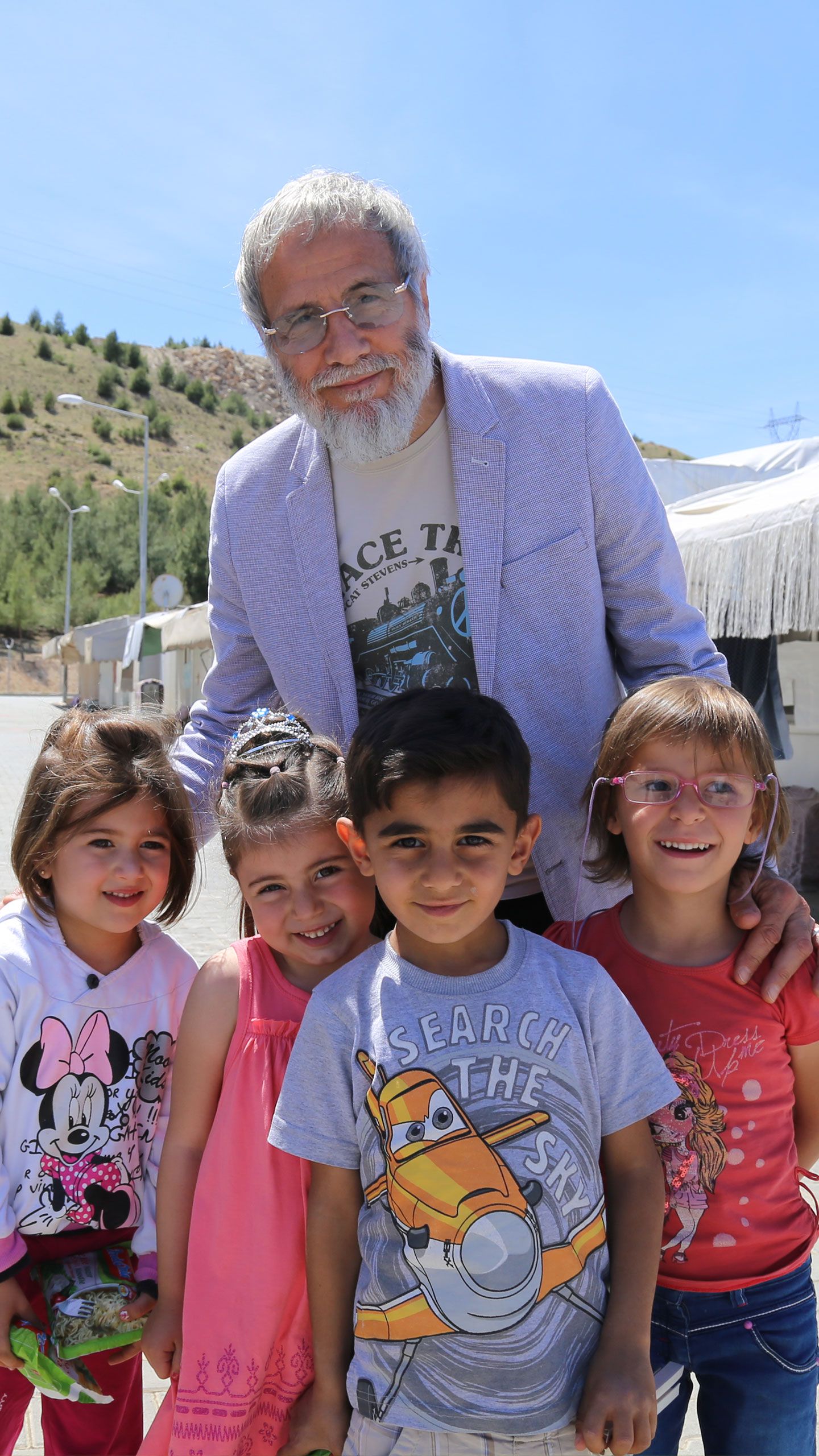About the Patron - Yusuf / Cat Stevens
Over the course of his life, Yusuf’s journey has become as much about his charitable work and philanthropy as it is about music. He has tirelessly used his public profile to draw attention to those in need across the globe. Privately he has also invested tremendous energy and resources into serving and supporting those in need. Motivated by love and compassion for all and with great humility he has made a real difference in the lives of some of the most vulnerable people in this world.
Yusuf’s conscience and urge to help others worse off than himself began when he started earning unnaturally large sums of money simply for doing what he loved. In the early ’70s he established a charity called Hermes and began channelling donations through the United Nations International Children’s Emergency Fund (UNICEF).
Yusuf soon developed his relationship with the Charity and became one of their earliest celebrity Goodwill Ambassadors from the world of pop music. UNICEF was the first high profile charity to harness the fame and appeal of celebrities to draw attention to their causes. Their focus on providing humanitarian support to children and mothers in developing countries had great appeal for Yusuf.
Apart from his regular donations, Yusuf (or Cat Stevens as he was widely known as then) participated in a variety of events and initiatives for UNICEF. In 1974 he visited numerous disaster areas including Ethiopia and Kenya. Although he didn’t want to publicise his charitable work very much, there are still some photographs of his journey there which show him after he shaved his head.
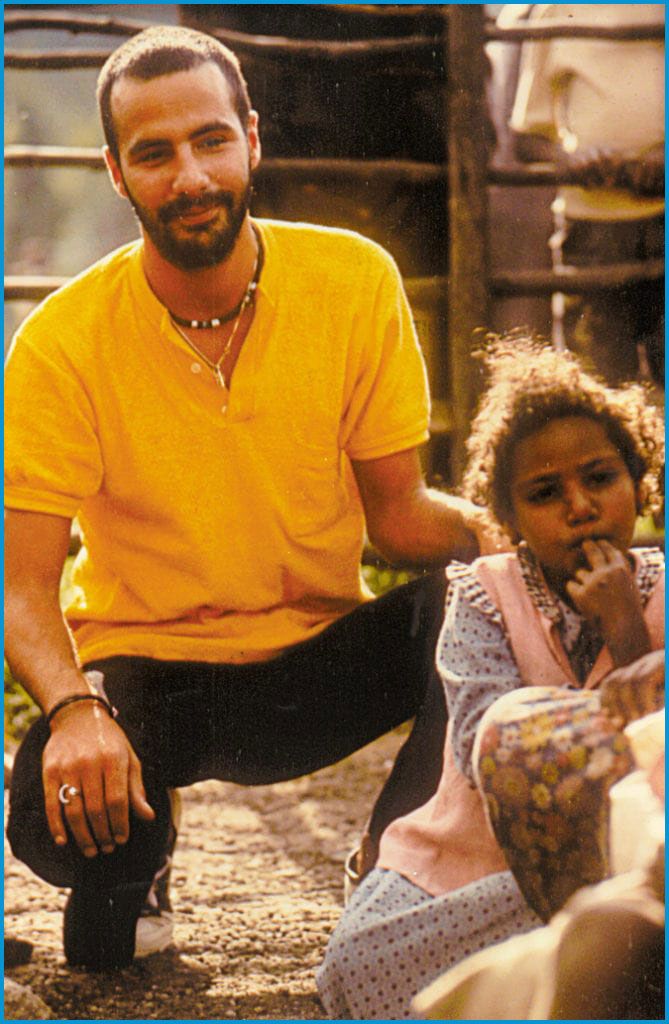
His songs and even his self-illustrated album covers often reflected his love for children through an idealistic hope and dream for a better world – “Blackness of the Night”, “Where Do The Children Play” and “Oh Very Young” being clearly obvious examples:
Oh very young,
What will you leave us this time?
There’ll never be a better chance
To change your mind.
And if you want this world
To see (a better day)
Will you carry
The words of love with you?
Will you ride
The great white bird into Heaven?
Maintaining his optimism and hopes for a more equitable world and an end to wars he wrote other socially conscious songs such as “Peace Train”, “Changes IV”, “O Caritas”, “Ruins” and “Can’t Keep It In”.
In 1975, he received the Qur’an and began to study Islam. It was only after he almost lost his life in the Pacific ocean and was saved by an apparent act of Divine favour that he finally realised his spiritual home and became a Muslim in 1977.
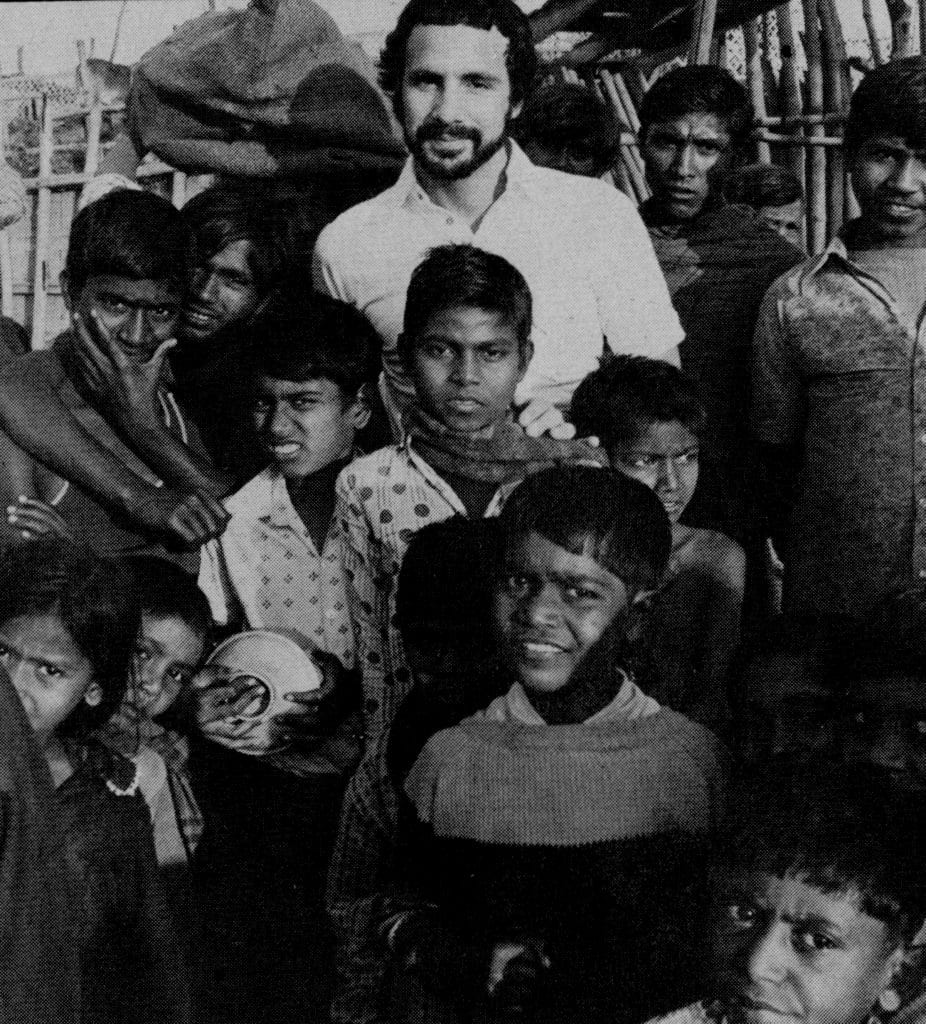
Having converted to Islam he struggled with the overt opulence and showy lifestyle of the pop music business and made the decision to walk away from the music industry. In 1979 he performed his last concert at the OXFAM/UNICEF concert, in Wembley Arena, that marked the International Year of the Child.
During his performance, he sang one of his elder brother’s songs, 'Child for A Day':
I was a child
Who ran full of laughter
I was a child who lived for today
My eyes full of sunshine
My heart full of smiles
I was a child for a day
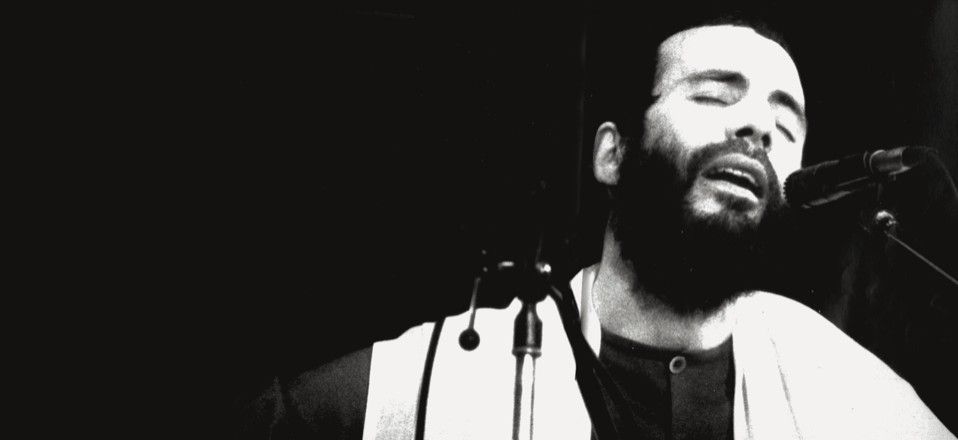
Music journalist Paul Gambaccini introduced Yusuf to the audience stating that “he has become one of Britain’s most popular international stars, but also the best friend UNICEF has had in rock music”. Yusuf performed a number of his most loved songs including “Father and Son” and “The Wind” and was joined on stage by his brother David and also Richard Thompson and David Essex.
At the time of the great famine and floods in Africa in 1985, Yusuf was asked to perform at the Live Aid concert at Wembley. The song he had prepared for his performance was called “In The End”, which he intended to sing a cappella, without a guitar or band.
And if you want to help your fellow man
You’d better start with what is in your hand
You can’t bargain with the truth
‘Cause one day you’re going to die
And good’s going high.
And evil’s going down in the end.
However, Yusuf was suspiciously excluded on the night. Nonetheless, seeing the humanitarian disaster taking place in Ethiopia and Sudan, Yusuf along with many Muslim friends and organizations in the UK established a humanitarian charity called Muslim Aid. It drew together leaders of a number of variant organisations who were united by the desire to provide relief for those affected by the 1983-85 famine which claimed almost half a million lives.
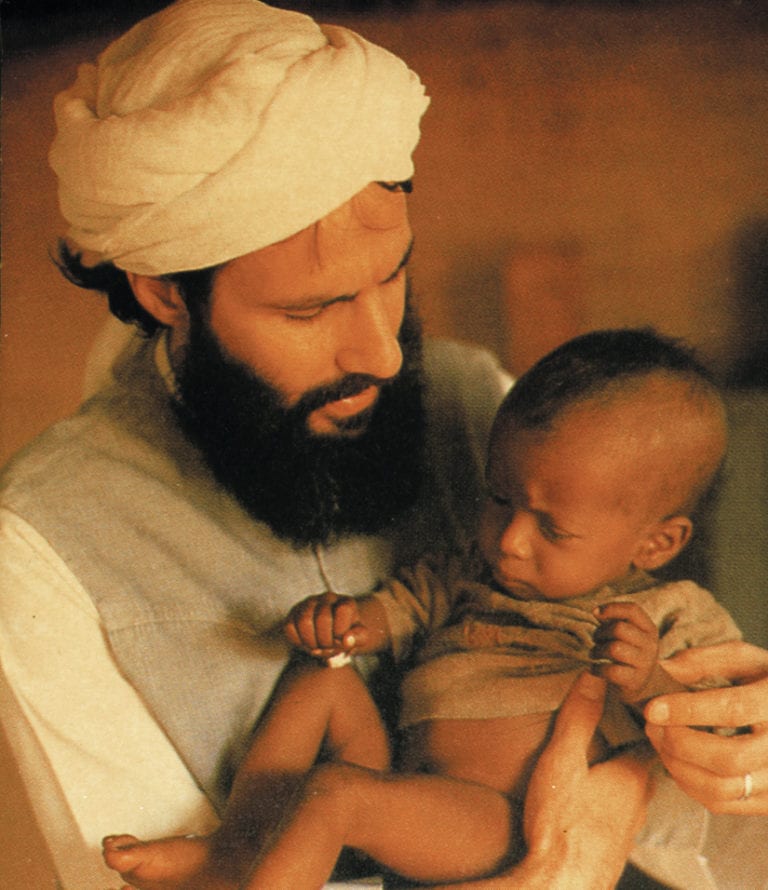
Yusuf acted as chairman for Muslim Aid from its inception until 1996. The charity has grown into one of the world’s foremost humanitarian organisations and is dedicated to helping those who are victims of conflicts or natural disasters and are suffering from: poverty, hunger, disease, illiteracy, discrimination, homelessness, debt, unemployment, injustice, deprivation, or lack of skills and economic opportunities.
I Have No Cannons That Roar
The Bosnian war of 1992-1995 was marked by genocide, ethnic cleansing, and horrific humanitarian atrocities led by Radovan Karadži against the Muslim Bosnians. Muslim Aid focused its efforts on the needs of orphans, widows, and families that had been devastated by the conflict.
“I remember in the early days of the conflict in Bosnia, one Egyptian doctor working on the ground phoned me from Sarajevo and pleaded with me to use my voice for children who were being slaughtered and maimed. That inspired me to write, ‘The Little Ones’.”
Yusuf renamed the song ‘The Little Ones (of Sarajevo and Dunblane)’ following the Dunblane Massacre of 1996, in which sixteen children and their teacher were killed by a lone gunman in a Scottish primary school.
Oh they killed all the Little Ones
With their eyes open wide
There was no one to help them
On the day that they died
No bed to run under,
No cupboard to hide
Strangely, it was the Bosnian War which awoke in Yusuf the need to revive his skills in the field of music more seriously. In 1995, in his capacity as chairman of Muslim Aid, Yusuf met Dr Irfan Ljubijankic, the Bosnian Foreign Minister. He gave Yusuf a cassette recording of a song he’d written in the hope that it might be used to help heal the war-torn region.
“The tragedy of the Bosnian war also helped me discover a whole new genre of Islamic European music. Whilst working for Muslim Aid and providing support to the orphans and families in the Balkans, I met the then Bosnian Foreign Secretary, Dr Irfan Ljubijankić, who had written a Bosnian song called ‘I Have No Cannons That Roar’. Dr Irfan’s song, the melody and words, were so moving, I was strongly affected. When we heard that he was shot down in a helicopter while flying over the hills of Bosnia, it made me realize I had to do something with Dr Irfan’s song.”
Tragically, Dr Irfan Ljubijankic was killed towards the end of the war. Yusuf decided to honour him by recording an album named after his song, ‘I Have No Cannons That Roar’, to raise funds for the victims of the Bosnian conflict. The album also featured a compilation of songs that were famous in Bosnia during the war and included Yusuf’s ‘The Little Ones’.
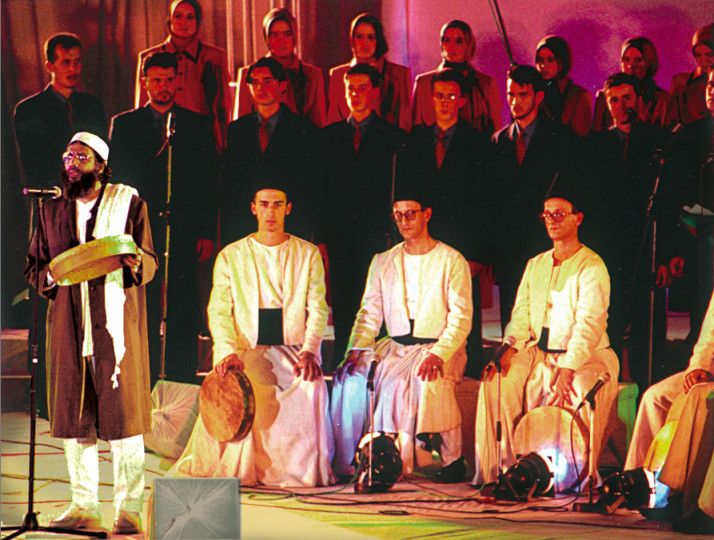
I have no cannons that roar
But I have faith in God and love
And I’ll surrender you to no one else
My mother, Bosnia, my love
In response to the Kosova War of 1999, Yusuf and his wife, Fawziah, set up a family personal charity called Small Kindness to help relieve the suffering and deliver aid to the refugees in Albania. It has gone on to help countless of the most vulnerable victims of many conflicts and natural disasters ever since. In 2003 Yusuf received the ‘World Social Award’ in Germany from Mikael Gorbachev for “dedicating his life to aiding the needy and the ill.” In 2004 Small Kindness earned the WANGO Humanitarian Award from the World Association of NGOs.
Indian Ocean
The 2004 Indian Ocean Tsunami claimed the lives of over a quarter of a million people making it one of the deadliest natural disasters in recorded history. It affected those living in almost all of the countries that border the Indian Ocean with Indonesia, Sri Lanka, India, and Thailand bearing the brunt of the destruction. As well as the catastrophic number of fatalities, many families and communities were destroyed and huge areas became humanitarian disaster zones.
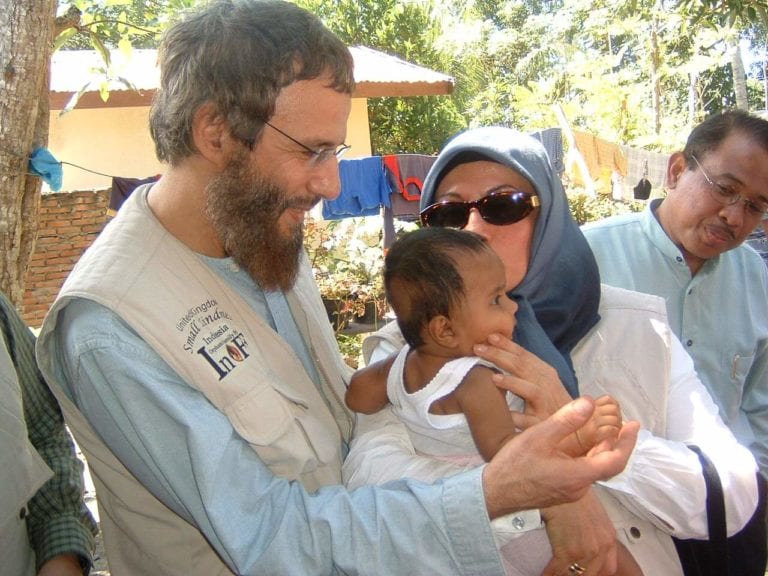
Yusuf and his wife, Fawziah, flew to Indonesia to visit the survivors. Whilst there, Yusuf picked up a guitar and performed a rendition of a specially written song called ‘Indian Ocean’, as well as ‘Wild World’, with the accompaniment of local Indonesian musicians. It was the first time in almost 25 years that he’d sung and performed publicly with a guitar. The profoundly positive effect it had in lifting the spirits of those who had lost so much was a significant factor in his decision to return to music making.
The wave was a-pounding
as we scrambled up the mountain
No one even dared to turn their head
Just one slip and you’re dead –
As the waves were dying, a child was crying
Searching for her mum and dad
A thin dress was all she had
She held us tight, we looked far and wide
But nothing there… there was nothing left
We all broke down and wept.
Yusuf recorded ‘Indian Ocean’ with all proceeds going to help orphans in Banda Aceh, Indonesia, one of the worst affected areas where Small Kindness have been active since the disaster. The song tells a story of an English family on holiday taking in an orphan after the tsunami. It demonstrates Yusuf’s deep-rooted belief in the potential for music to be uplifting to people’s souls.
He Was Alone
Throughout the last decade, Europe has been experiencing a refugee crisis with many desperate people fleeing conflict, political instability, and economic hardship to seek safety on the continent. A key contributing factor was the terrible civil war in Syria. Small Kindness has been working to support the child victims of this exodus, many of whom find themselves orphaned or targeted for their vulnerability. Yusuf visited a refugee camp on the Turkish/Syrian border and reported of his experience:
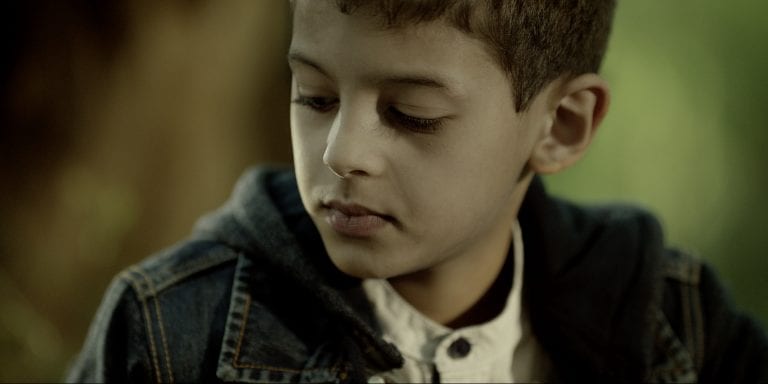
“I’ve just returned from a visit to southern Turkey and a camp on the Turkish/Syrian border in Gaziantep. People here have lost their homes and are waiting for peace to return, but the children still remain bright and hopeful. The visit was much appreciated and they sang for me. A beautiful human experience.”
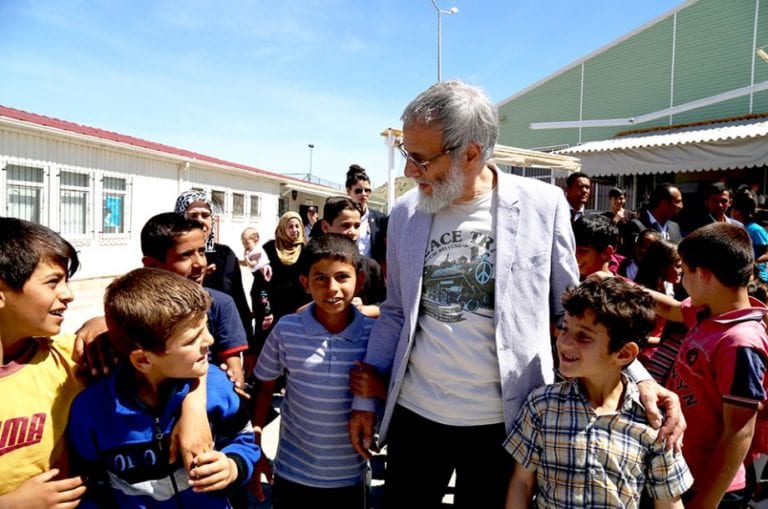
Inspired by the saying of Pope Francis during his visit to a refugee camp in Greece, Yusuf established the #YouAreNotAlone campaign. The charitable drive featured a single called ‘He Was Alone’, and a concert at Central Hall in Westminster – across the road from the British Houses of Parliament. The concert was supported by Ricky Gervais, Steve McQueen, Pete Townshend, Naomie Harris, Naomi Campbell, Bob Geldof, Ben Elton, Blondie, Omid Djalili, Emma Thompson, and Queen. All proceeds and donations were channeled through Save The Children and Small Kindness.
“I simply decided to help humanise the narrative and lend my voice to the call for keeping hearts and doors open to every refugee, especially youngsters, who have lost what future they might have once hoped for.”
He was one
who never grew old
On a list of names, upon the road
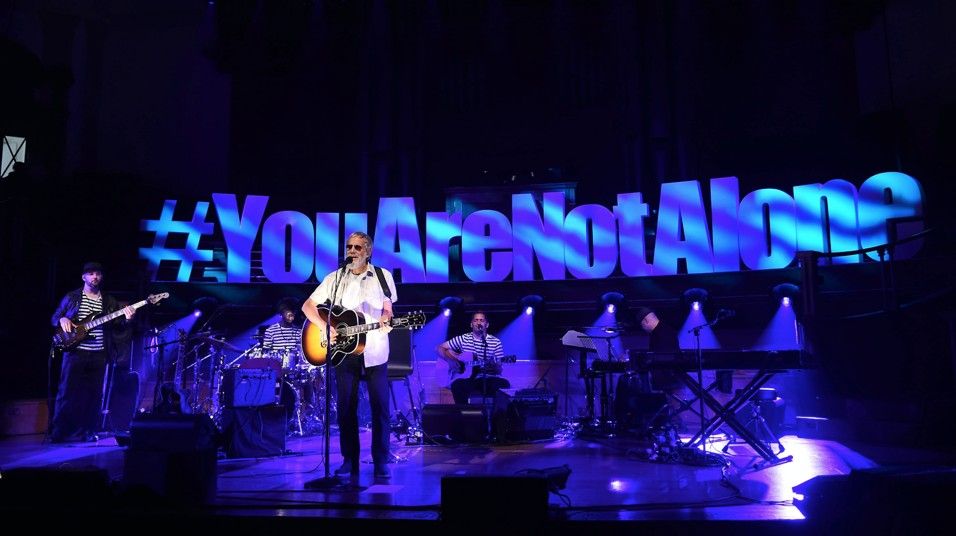
Maybe There’s A World
In addition to the charities and campaigns that Yusuf has helped steer from the forefront, he has lent his support to a wide range of other good causes.
This year Yusuf arranged to feed the Palestinian refugees still exiled in Lebanon. For the whole month of Ramadan over one thousand families are enjoying their breakfast time with the food provided.
Yusuf’s memories of Palestine go back as far as 1988 when he traveled there to deliver aid to the first victims if the crackdown on the Intifadah. Thereafter, the Israelis branded him ‘undesirable’ and refused to allow him to re-enter the Holy Land. Yet his hope still continues that the world may one day wake up and look at the suffering for what it is, an abominable humanitarian tragedy created by apathy and heavily one-sided support for the status quo with no merciful end in sight.
I have dreamt of an open world,
Borderless and wide
Where the people move from place to place
And nobody’s taking sides
Maybe there’s a world that I’m still to find
Maybe there’s a world that I’m still to find
Open up o world and let me in,
Then there’ll be a new life to begin
At the start of 2020 Yusuf officially begun channeling all of his charity work through the Yusuf Islam Foundation, and established Peace Train with the soul aim to ‘feed the hungry and spread peace’ bringing relief and education through the promotion of peace and respect amongst people of different backgrounds, nationalities, and religions. He actively engages in the charities projects with the hope that one-day people will jump up on the Peace Train, with hearts open – borderless and wide…
‘Cause out on the edge of darkness, there rides a peace train
Oh peace train take this country, come take me home again
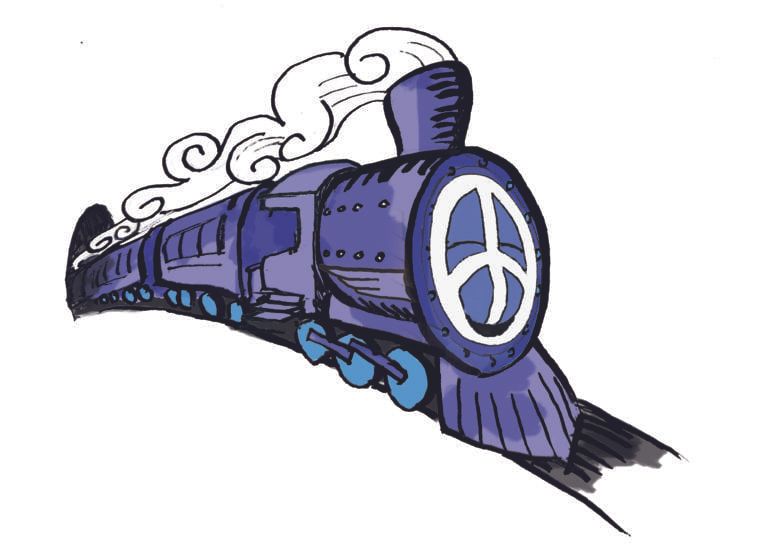
For more information about Yusuf/Cat Stevens please visit catstevens.com

